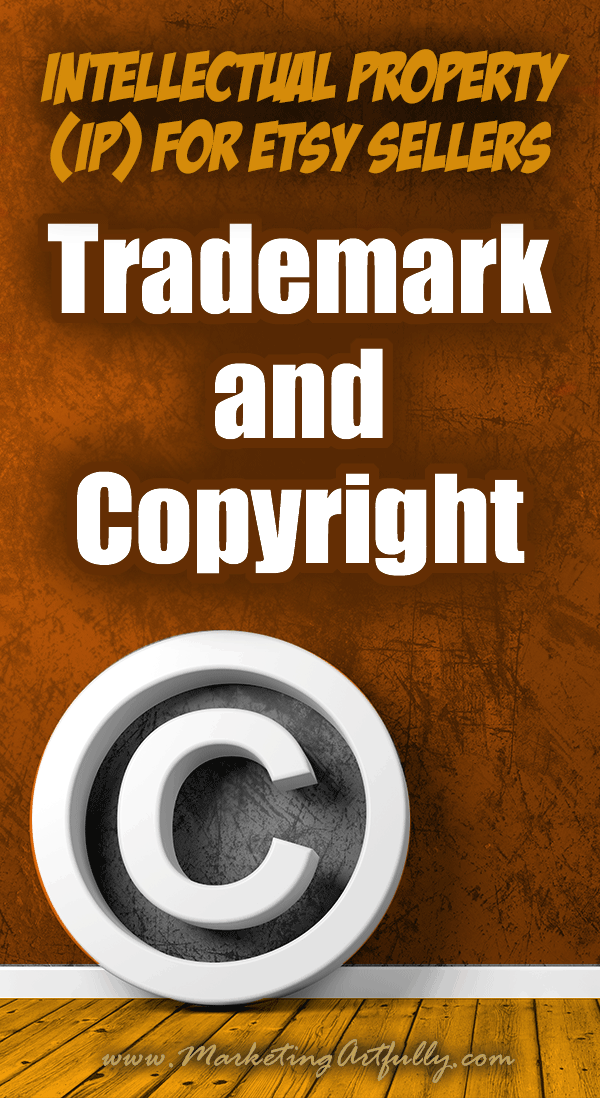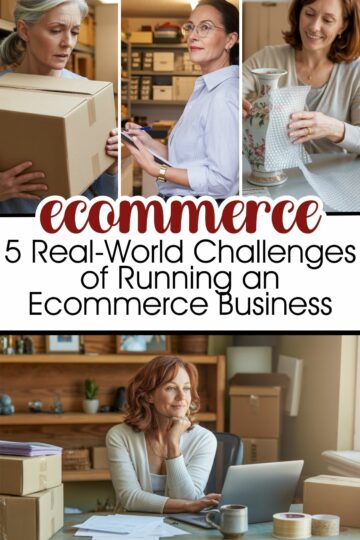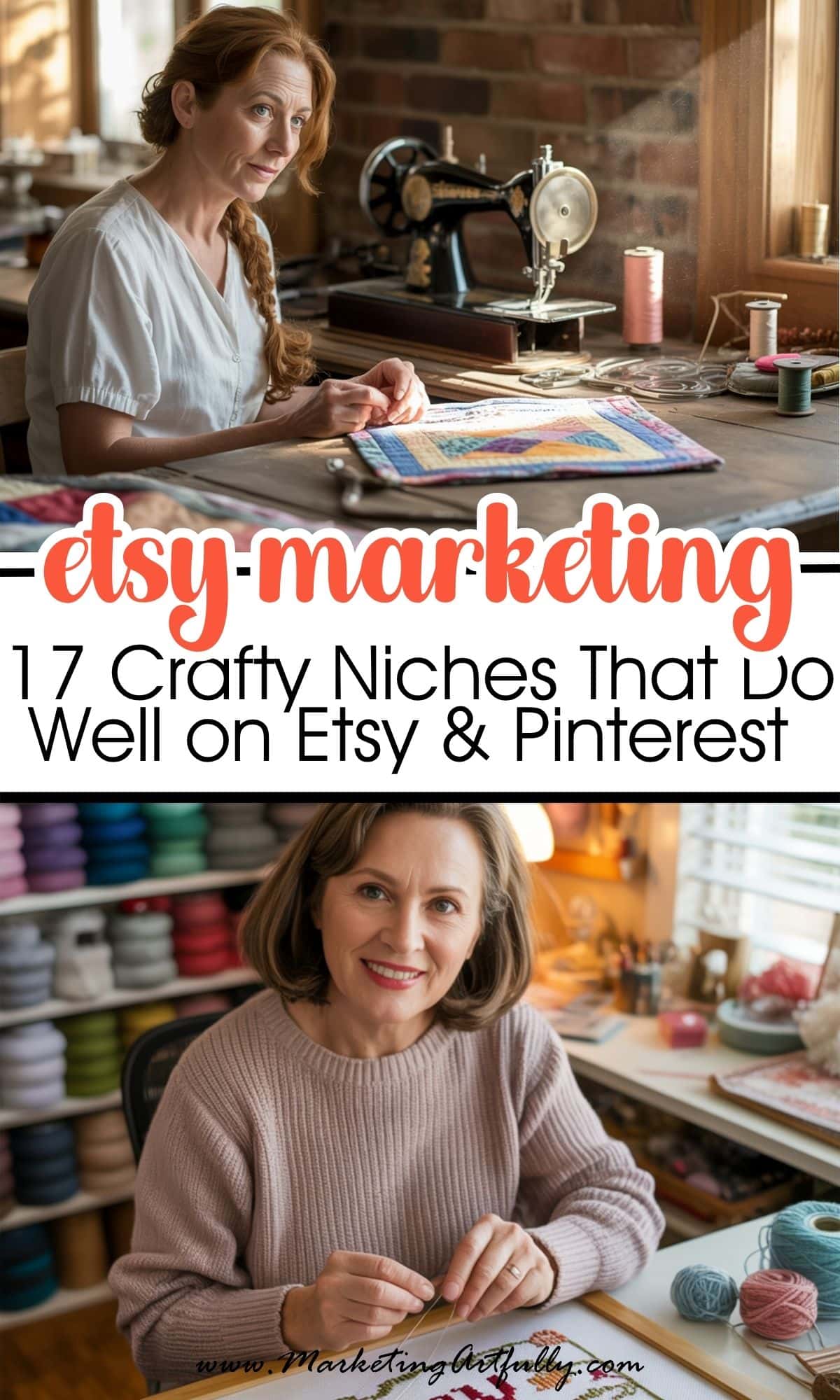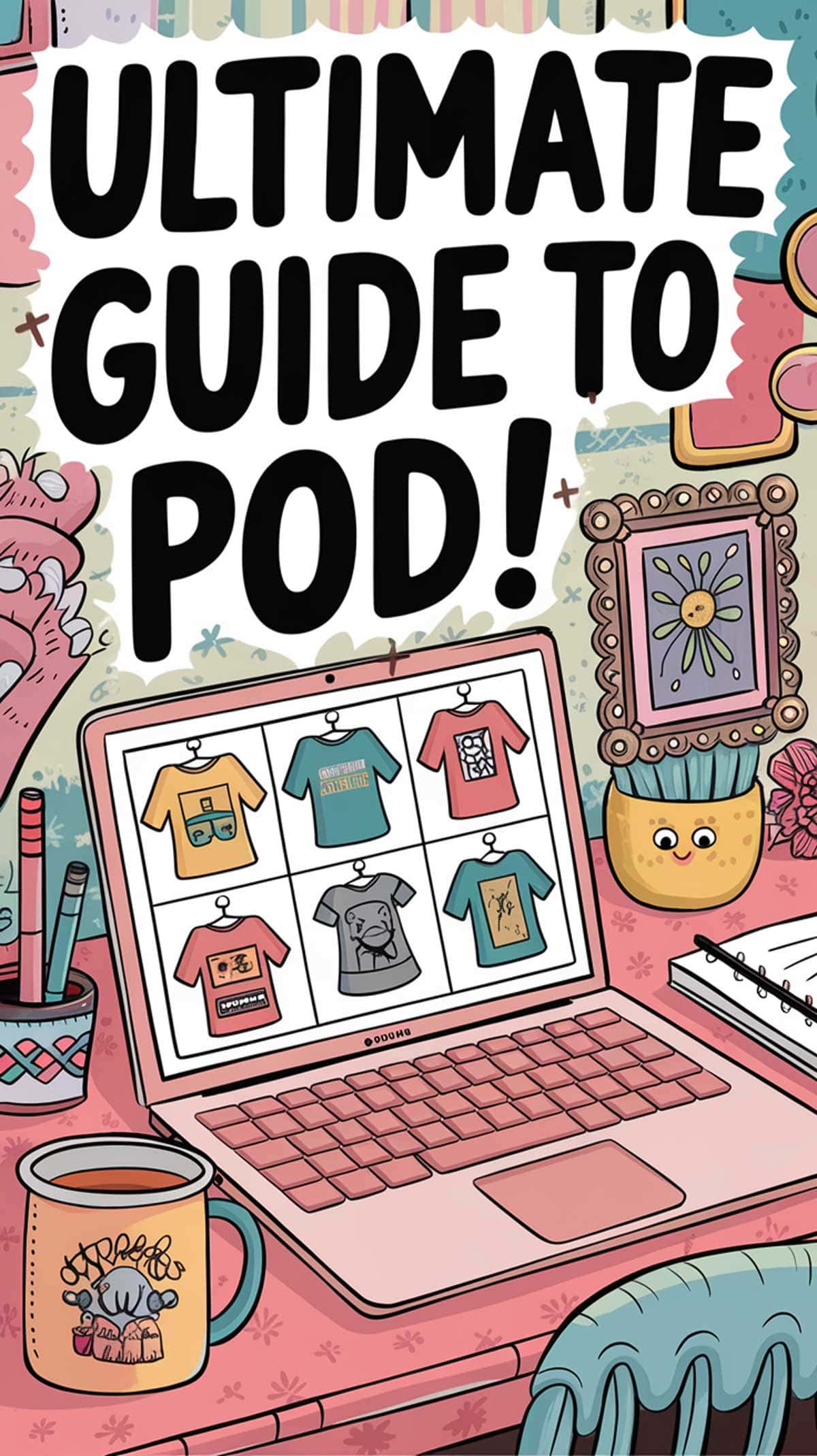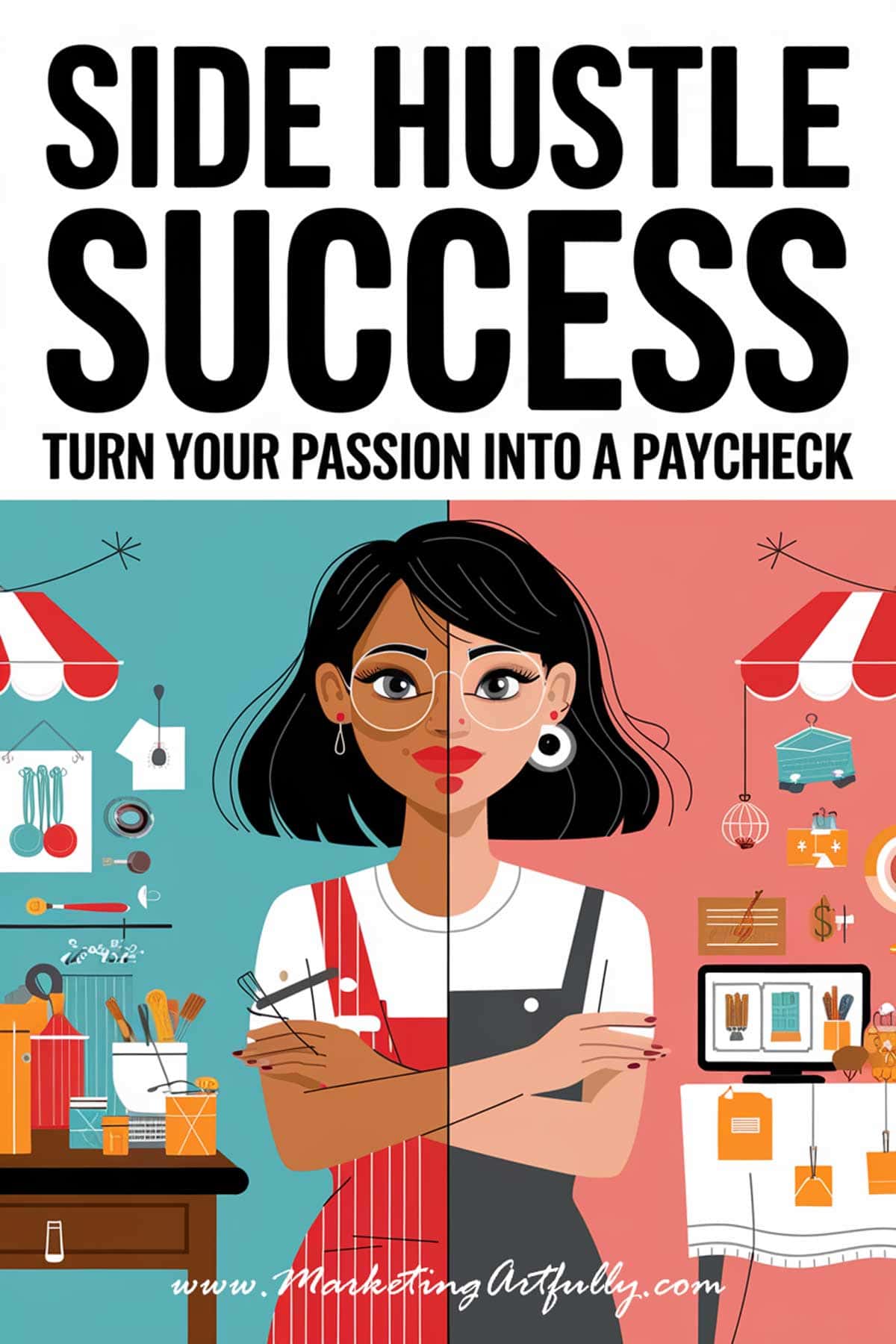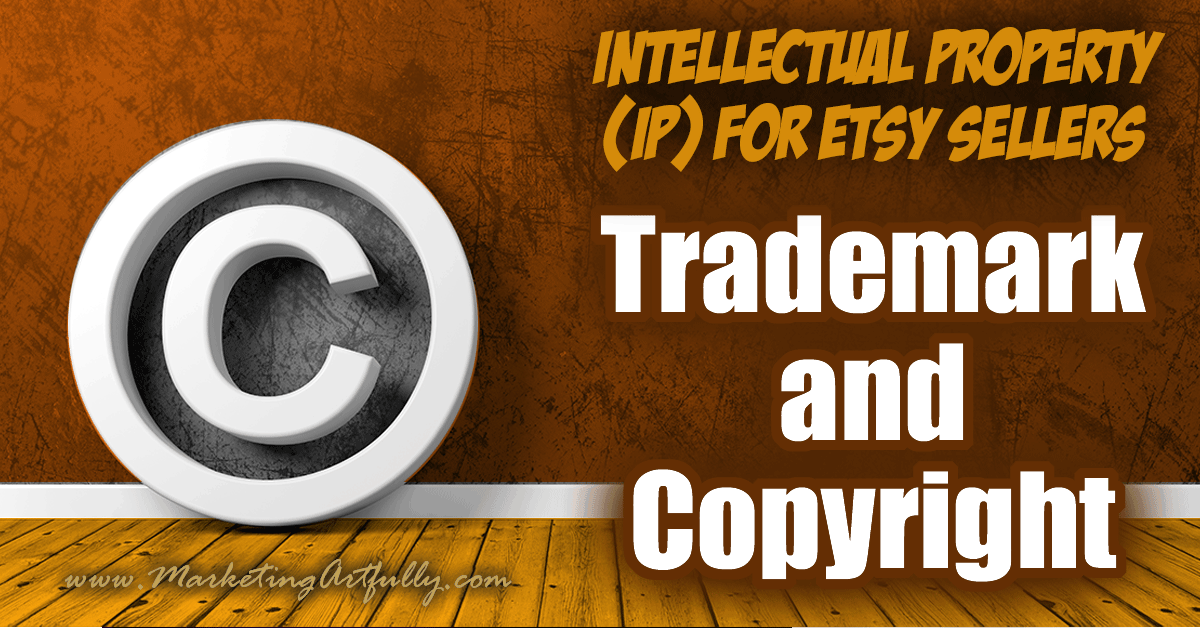
As an Etsy shop owner IP (Intellectual Property) is a big deal. Whether you are trying to protect your own ideas or worrying about whether you are going to get in trouble for using someone else's, it is definitely a thing that most of us creatives don't know enough about.
It can be so frustrating to see a product that you have come up with, developed and nurtured being sold by another shop, for cheaper, and done less professionally.
While I know wee bit about this topic, I figured that I would go to the source and ask Suzanne Olden (https://suzannereisigolden.wordpress.com/) who is a friend and IP expert what we should be watching out for!
Take it away Suzanne...
IP (Intellectual Property) and Your Small Business, Etsy or Otherwise
If you’ve spent any time reading and listening through Tara’s posts and videos, you know that she has an out of the box thought process in how to best market your business.
One thing that most small business owners don’t know enough about is Intellectual Property and what is ok and not ok.
I am an IP paralegal for my day job and while this is NOT legal advice (as a Paralegal I can’t give legal advice), I wanted to share some basics that should keep you out of hot water.
What is intellectual property (IP)?
Intellectual Property is defined as “refers to creations of the mind: inventions, literary and artistic works, and symbols, names, images, and designs used in commerce” by the World Intellectual Property Organization (“WIPO”).
IP consists of Patents, Trademarks, and Copyrights.
For the most part, patents aren’t something Etsy sellers need to worry about. In my job I don’t deal with patents. I do, however, deal extensively with trademarks and copyrights, and honestly, these two are where most people get into trouble.
Trademarks
Trademarks, as defined by the United States Patent and Trademark Office (USPTO), are any word, name, symbol, device, sound, or any combination, used or intended to be used to identify and distinguish the goods/services of one seller or provider from those of others, and to indicate the source of the goods/services.
Any word, name, symbol, device, sound, or any combination, used or intended to be used to identify and distinguish the goods/services of one seller or provider from those of others, and to indicate the source of the goods/services.
In a word, they are brand names or symbols. Think about the logos you know well: Nike, Apple or Starbucks. Just saying those words probably brings the logo to mind.
This is where many Etsy sellers get in trouble. They will get a cease and desist because someone has tradmarked a term like "Shabby Chic" or "Boy Mom" and get upset that they can't use this in their designs.
If you are thinking about spending a lot of time doing a new product line, it is worth taking a look at the Trademark database and seeing if someone had Trademarked that term in the medium you using.
For example, Shabby Chic by Rachel Ashwell is a well know trademarked term in home design. Doing a quick search we can see that she has trademarked this term for a number of different product types.

What that means is that you can cannot use the term "Shabby Chic" in your Etsy titles, tags, designs or anywhere else.
There are some that are "LIVE" and some that are "DEAD". If you are doing a search and the the filing is "DEAD" you can go ahead and use that term and even trademark it yourself if it is important to your business.
Copyrights
A copyright is a form of protection grounded in the U.S. Constitution and granted by law for: original works of authorship fixed in a tangible medium of expression (i.e. words are written down, music is recorded, etc.) Copyright covers both published and unpublished original works of authorship including poetry, novels, movies, songs, computer software, and architecture.
Copyright does not protect facts, ideas, systems, or methods of operation, although it may protect the way these things are expressed. What that means is that if someone has a particular system of making something, a copyright would protect the words used to express the idea, but not the idea itself.
Your work is under copyright protection the moment it is created and fixed in a tangible form that it is perceptible either directly or with the aid of a machine or device. What that means is you wrote it down or recorded it.
So why is this important? Well, let’s say that your Etsy shop sells your pieces of artwork that are original. If someone else copies them and sells them you’d be upset, right? Well if you think about the reverse, if you want to drum up more business and start using Disney designs in your creations, wouldn’t that be stealing their “stuff”? People get all up in arms when big companies enforce their copyrights and trademarks and go after “the little guys” to make them stop. But if they don’t, they could lose the rights to the very things that make them money – their “stuff”.
Additional Resource: How To Avoid Problems With Disney For Etsy Sellers
Getting In Copyright Trouble
So what happens if you do use someone else’s stuff? Well, if you refuse to stop using protected materials, you can get sued.
Without getting to technical it can literally cost you hundreds, thousands or even millions of dollars. IP is protected by laws that impose penalties to those to violate the protections. Yes, the owner has to prove your used it without permission, and yes, it’s complicated to do it, but know that owners will do so because if they don’t it will cost them even more.
So what do you do if you’re not sure if it’s ok to use something? Contact the IP owner and show them what you want to do and ask if it’s ok. Be safe, not sorry. With IP it isn’t better to ask forgiveness instead of permission. It’s an expensive mistake you don’t want to make.
Additional Copyright and Trademark Questions For Etsy Sellers
Tara here! After Suzanne sent over her article, I had some questions that came up so I asked. Questions are mine, answers are Suzanne's!
1. If we have protections of our ideas without copywriting them, why should we pay for the copyright?
Paying to register materials is helpful when you do have to enforce the right. The registration give a definite point where you can prove you created the material. For instance day you wrote a book about how to do something. Fred down the road finds your book and writes the same book. So you tell him to knock it off. He says no because you actually stole HIS book. Having the registration saves the day. And filing a copyright application only costs $55 and doesn't require renewal for 95 years.
2. What about if we make up a phrase or concept that we use on a piece of artwork, tshirt or something else and then someone ELSE copyrights it?
If you make a design or come up with a catch phrase and use it anywhere, you would want to file a trademark registration. It's a bit more expensive, and renewal is at year 5 and year 10 and every 10 years after if you file it federally, but if your mark is only important regionally you can file with a state or states which is probably cheaper. If someone claims they had it first, that registration 1) gives you the rights and 2) will not allow them to file the same mark for the same use, or even a different use if it would be confusing to others.
3. At what point should we think about copywriting something, especially if it is a best seller for us?
We file for copyright registrations at work for any new material as soon as it is released to the public. If you have a book that you want to protect because it's a best seller, do it. At the very least make sure it has a notice that includes the year it was written. For example, if your book was written in 2015 the notice would be © 2022 your name or business name. All rights reserved.
4. Is it logical to copyright something when it costs so much to defend that copyright?
It's logical to register your work in order to keep that defense LESS expensive because you have a definite date reference for your claim of ownership.
Final Thoughts On Copyright and Trademark For Etsy Sellers
Okay, Tara again!
Whew, that was intense... and I know that many creatives like me don't like to bother with all that legal mumbo-jumbo but it is super important! So here are some thoughts...
1. My writing partner and I do put copyright materials in the backs of all of our books. That is super easy and only makes sense to do.
2. If you are an Etsy seller and doing new and unique designs or sayings, it would be cost prohibitive to copyright or trademark everything, but why not pick a number of sales or a sales volume when it would make sense to trademark or copyright your term or artwork.
Say you do a Tshirt and it TAKES off... for example, I got the cutest shirt, "save the chubby unicorn" that is a rhino! How freaking fun is that. Doing a search there IS a trademark on "chubby unicorn" so the person who came up with that great idea can protect their design!
3. Please don't deliberately make things to sell on Etsy that violate a trademark or copyright. I have seen so many gals in Facebook groups who are despondent that their shops got shut down because they sold things based on copyrighted or trademarked terms. They are always shocked and say, "but everyone is doing it". Just because everyone is jumping off the bridge doesn't mean that your shop will not be the one to get shut down!
